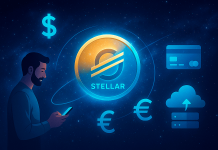From how a bank makes a loan to how a chip is manufactured, it’s essential that everyone within that chain can reliably trust one another and verify transactions. In just a few short years since bitcoin emerged, cryptocurrencies enabling fast and low-cost transactions have become the de facto currency of choice for many consumers. Through this website, you can learn more about trading bitcoin.
This reality has created opportunities for finance professionals who want to make these same types of low-cost international payments. It is an exciting new world for the content creation and distribution industry. From a “pay what you want” model for musicians to a music video made by people who have never seen your face, you can now create and distribute your content just as quickly as a video clip of puppies playing inside a cage on YouTube.
This same feature makes it possible to trust that these transactions are not just taking place between two unknown entities but between two entities whose reputation and identity you can verify yourself. Of course, more information is needed, but no laws are in place to stop it — making this an exciting new frontier.
The conventional methods
Remember when a major label wouldn’t even listen to an artist unless they had a booking agent, an entertainment attorney, and a publicist? Nowadays, that process has changed so much that you can make a song or video on your phone and have it go viral within minutes.
It is great news for content creators — especially if you’re willing to eschew the significant labels/distribution systems entirely. This new paradigm has already spawned new ways of doing business that was never possible before.
For example, with the blockchain protocol, verifying that a specific artist has permission/rights/royalties to a particular work and pays them out instantly is possible. And while this may matter little to the average consumer, it’s a significant problem in the content creation industry.
The way things work today, each song or video you want to publish requires a separate license. Even if you publish your music on your website with your domain name, it is true. Likewise, every place you intend to publish that works with any digital media must have licenses for every piece of content that appears on their site — regardless of whether or not they’ll make any money off it (i.e., YouTube).
If you don’t have a license for the music, you risk getting a nasty takedown notice from a copyright holder. If that happens, it may be days or weeks before you receive your service shut down.
Benefits of blockchain
Using the blockchain protocol, we can ensure that through-the-line revenues are automatically tracked, so content creators get paid directly every time their works are shared on their website. They get 100 percent of the revenue – even if they’re not selling access to their work on sites like Sound Cloud. In addition, we no longer have to worry about fraud on third-party sites; all transactions can be verified by pool directly with the artists. It eliminates the need for intermediaries to ensure another approves one party.
It’s not just a better way of doing business but a more transparent way: having your money go directly to you and the people who contributed their work. But unfortunately, even with the best plans, there are still opportunities to fall through the cracks.
No content piracy with bitcoin and blockchain:
You’ve spent a year writing an album, and now you’re ready to publish it. You’ve hired a producer and two other songwriters to ensure the product is up to par. But before you can release it into the world, you’ll probably need permission from all the other writers who contributed their work.
If you’re lucky, they’ll all say “yes” and send you their publishing agreements — but if they don’t? Or if they say “no”? You’ve got no choice but to delay your release date until you have paid royalties for each song.
When you finally do get it out there, the waiting begins. How will you know if people are legitimately buying your album? After spending a lot of time, energy, and money to get your album out there, it would be tragic if people started selling pirated copies of your work. But at least now you can be sure that no one will steal it because they can’t — which means you can concentrate on creating more music instead of chasing after pirates.
Disclaimer: This article contains sponsored marketing content. It is intended for promotional purposes and should not be considered as an endorsement or recommendation by our website. Readers are encouraged to conduct their own research and exercise their own judgment before making any decisions based on the information provided in this article.



































